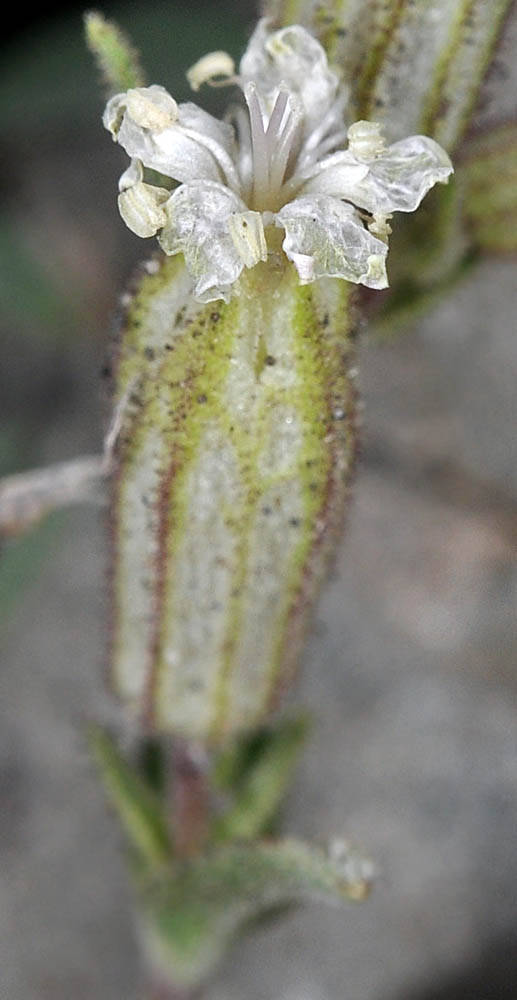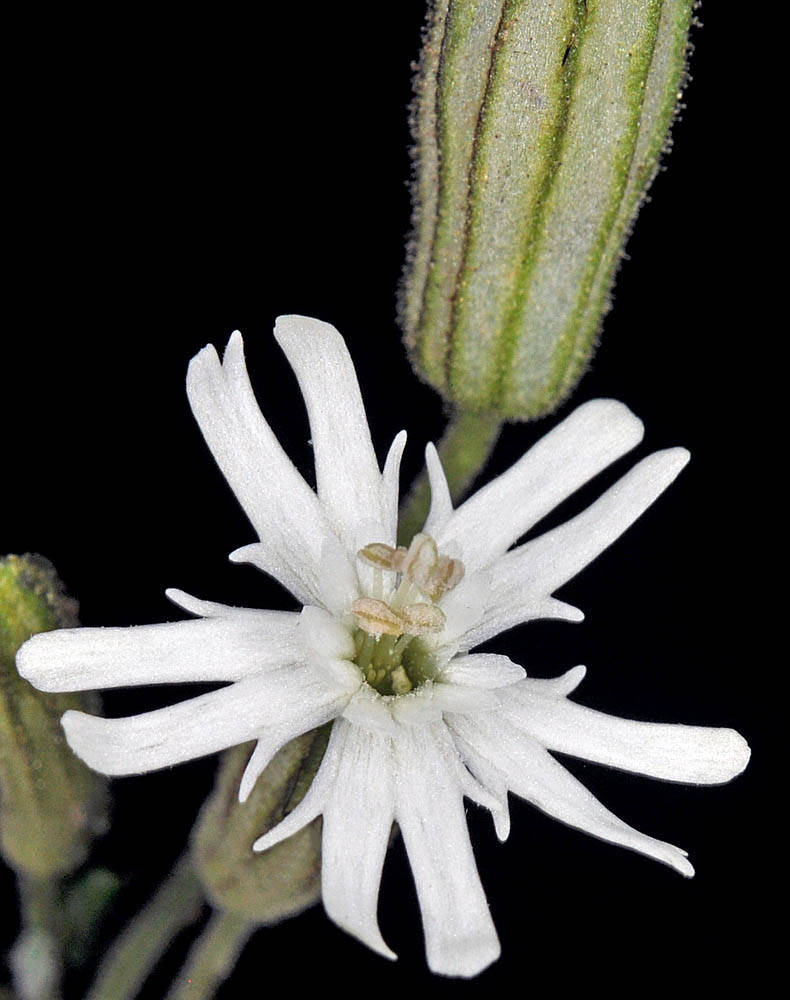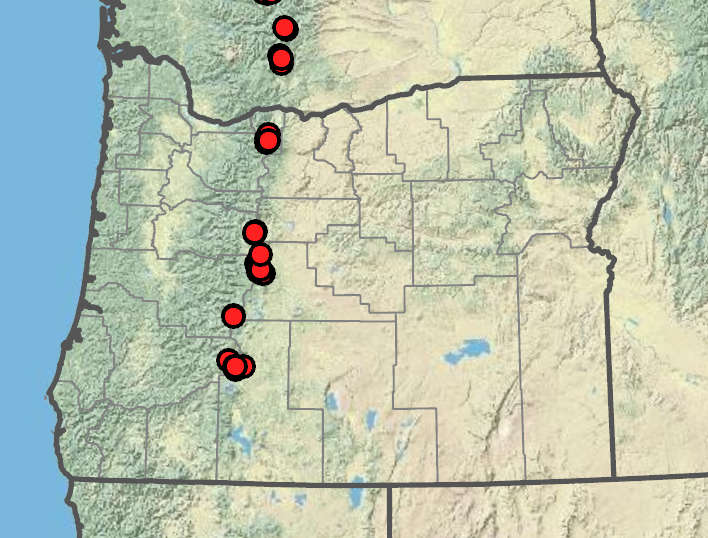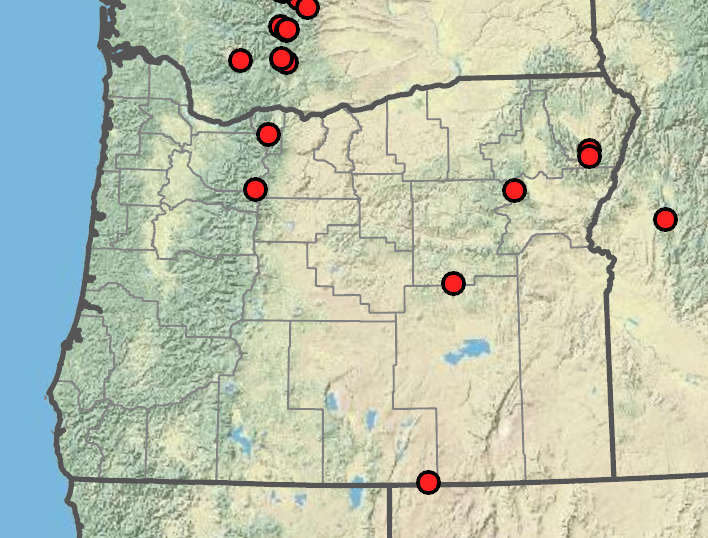Silene suksdorfii
Silene parryi
Suksdorf's catchfly
Parry's catchfly
decumbent to erect, 3–15 cm;
branches many, puberulent, glandular-viscid above.
erect; (10)20–60 cm;
branches few, puberulent, glandular-viscid above.
basal narrowly oblanceolate, 0.5–4.5 cm × 1.5–3.5 mm, densely tufted; fleshy;
cauline in 1–3 pairs, linear-lanceolate, 0.5–1.5 cm × 1–2 mm, abruptly reduced upward.
basal spatulate or oblanceolate, 3–8 cm × 2–14 mm, densely tufted or not, not fleshy;
cauline in 2–4 pairs, narrowly oblanceolate to linear-lanceolate, 2–8 cm × 2–8 mm, abruptly reduced upward, not overlapping pedicels.
terminal; open cymes, not 1-sided, or flowers solitary;
pedicels glandular-viscid.
terminal; open cymes, not 1-sided, or flowers solitary;
pedicels > calyx, glandular-viscid.
bisexual; erect;
calyces campanulate, not inflated in fruit, 9–12 mm; short-glandular-hairy, prominently 10-veined, not netted above; pale commissures present; commissural veins fork above and fuse with lobe veins, becoming papery;
cell walls of hairs purple;
lobes 1–2 mm;
tips acute to obtuse;
petal claws ciliate at base; appendages 2;
limbs 3–5 mm, white to purplish;
lobes 2;
stamens equaling petal claws;
styles 3(4), equaling petal claws.
bisexual, ascending to erect;
calyces campanulate, inflated in fruit, 13–14 mm, glandular-hairy, prominently 10-veined, netted above; pale commissures present;
veins in lobes not thickened or broader than commissural veins; commissural veins fork above and fuse with veins in lobes;
lobes 2–3 mm;
tips acute to rounded-obtuse;
petal claws glabrous; appendages 2(4);
limbs 5–7 mm, white, often green- or purple-tinged;
lobes(2)4, 2 inner > outer;
stamens equaling petal claws or barely exserted;
styles 3(5), exserted.
ovoid;
teeth 6(8);
stalks 2–3.5 mm.
narrowly ovoid;
teeth 3(5), splitting to 6, 8 or 10;
stalks 2–3 mm.
1–2 mm, brown, winged.
1.5–2.5 mm, brown, not winged.
=48.
=48, 96.
Silene suksdorfii
Silene parryi
Rocky crevices, ridges, slopes. Flowering Jul–Sep. 1600–2800 m. Casc, ECas. CA, WA. Native.
Grassy meadows, rocky areas. Flowering Jun–Aug. 1400–2600 m. BW, ECas. ID, WA; north to AK, northeast to Alberta, east to WY, southeast to UT. Native.
Silene parryi can sometimes be confused with S. douglasii, S. grayi, and small plants of S. scouleri.
Rich Rabeler, Ronald Hartman
Rich Rabeler, Ronald Hartman
- Local floras:
CA,
OR,
WA
- Local Web sites:
CalFlora,
CalPhotos,
Flora NW,
PNW Herbaria
WildflowerSearch
iNaturalist (observations)
USDA Plants Database
- LBJ Wildflower Center
- SEINet
- Plants of the World Online
- Encyclopedia of Life
- Wikipedia
- Google Image Search





